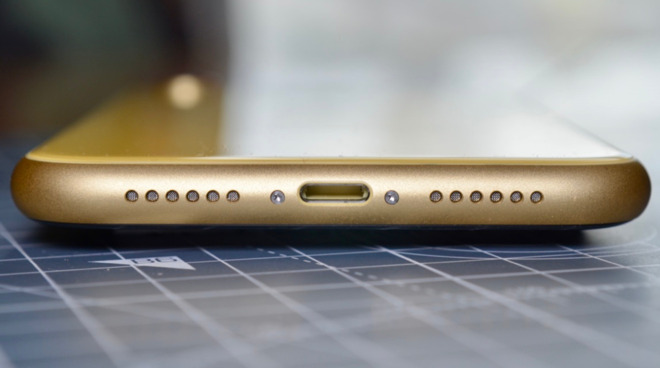A version of the "iPhone 13" that lacks a Lightning port could force changes to recovery processes, a report claims, with an "Internet Recovery" mode allowing for the reinstallation of iOS without needing to connect the iPhone to a Mac or PC.

Recovering an unresponsive iPhone usually requires it to be connected to another device, typically via the Lightning port on the base. If rumors of a port-less iPhone are true, the lack of a Lightning port or any other standard physical connection may make the device difficult to maintain.
To allow for a complete reinstallation of iOS on an unresponsive iPhone without a distinct physical connection, Apple is allegedly looking at ways to do so. Based on rumors from Appleosophy, the main way to do this is by something tentatively called "Internet Recovery."
Apple's software teams are said to be examining three ways to make the iPhone enter a mode that will allow it to recover.
The first method involves a user putting the iPhone into a manual recovery mode, triggering the Internet Restore broadcast. This is picked up by nearby Macs or a PC with iTunes installed, which will bring up prompts to guide the user through the rest of the restoration.
The second way is for the device itself to enter the mode automatically, again bringing up the same prompts. A third apparently involves using Bluetooth as a "last resort" measure to broadcast the signal and for data transfers.
Apple is thought to be interested in using the first two methods for recovery options, and has apparently been testing the processes for a while. However, it is claimed the processes are currently too slow for public use, indicating more work is needed on the subject.
While wireless recovery options are the main focus of the effort, physical access still isn't being completely forgotten. A hardware team is apparently considering using pogo pads to initiate a physical connection, without requiring a standard port to be available.
Currently, it is suggested Apple could hide the pads at the back of the SIM card slot and use a custom SIM card tray cable to interface with them.
Hidden ports aren't new to Apple, such as the one in the back of the Apple TV as well as the Apple Watch. However, it is claimed the team working on the problem isn't allowed to make housing modifications, such as to shield the pads behind a door or panel, which could make development tougher.
Port-less iPhone rumors have circulated over the years, but have so far yet to be proven right. The relative lack of a track record for the outlet also makes it difficult to consider how genuine the rumor is at this time.
The "iPhone 13" is currently rumored to have an always-on display that could also run at 120Hz, a four-camera system on the back with LiDAR, a minimized notch, and the return of Touch ID.


